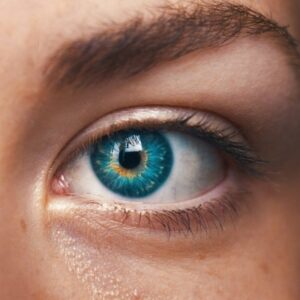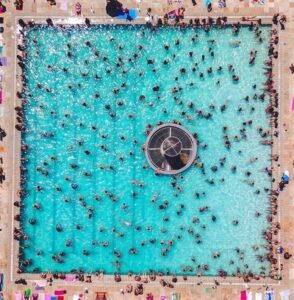The Earth couldn’t sustain life without the heat and light the sun provides, nor could humans naturally produce vitamin D through ultraviolet radiation (UV). But you can get too much of a good thing. We know that prolonged exposure to the sun can result in sunburned skin, but were you aware that UV radiation can actually sunburn your eyes? That’s why it’s so important to understand:
- What UV radiation is
- How it can damage your eyes
- That sunburned eyes aren’t just a summer issue
- How to prevent sun damage to your eyes
At Hardin Valley Eyecare & Optical, we want our patients to have the best vision possible for as long as possible. Keep reading to understand the threat that UV radiation poses to your eyes and how you can protect them.
What is UV radiation?
UV radiation comes in three types: UV-A, UV-B, and UV-C rays. UV-C radiation has little to no effect since it is blocked by our atmosphere. However, UV-A and UV-B rays are still a concern.
- Most UV-A rays are able to penetrate our atmosphere and reach the Earth’s surface. These ultraviolet rays can contribute to skin and eye damage, premature aging, skin cancer, and even weakened immune systems.
- Most UV-B rays are prevented from reaching the Earth’s surface by our atmosphere. However, the rays that do make it through contribute to skin issues, snow blindness, and our ability to fight off illnesses naturally.
The biggest danger of UV-A and UV-B radiation is that we are unable to see it or feel it on our skin. This means taking steps to protect ourselves, including our eyes, even if we don’t think we’re in any danger.
How UV Radiation Can Damage Your Eyes
Sunburn on the eye is known as photokeratitis, also known as corneal sunburn. This condition is caused by intense, short-term exposure to UV-B rays entering the atmosphere. It’s most common after spending the day outside without adequate eye protection, especially around snow and water features such as rivers, lakes, and oceans.
When the cornea is exposed to too much direct sunlight, the tissue becomes inflamed like a sunburn on your skin. This tissue is very sensitive and it only takes a few hours to become inflamed. Mild cases can be very painful and severe cases can result in temporary vision loss.
Sunburned Eyes Aren’t Just a Summer Issue
Sunburn on the eye can happen any time of year, even when it’s cloudy. It’s true that the Earth receives the most UV light during the summer. However, snow, sand, and water also present a significant risk for corneal sunburn due to their highly reflective nature.
They can also increase the amount of UV light that’s being reflected. The same is also true in the mountains at higher elevations, tanning beds, and when using industrial equipment such as blowtorches and other welding equipment.
UV exposure brings a new host of problems as we age. It can lead to or worsen conditions such as age-related macular degeneration, cataracts, and even skin cancer around the eye. This is why it’s extremely important to take safety precautions for your eyes when going outside, even if you don’t feel like it’s necessary.
How to Prevent Sun Damage to Your Eyes
The best thing anyone can do to prevent sun damage to their eyes is to wear sunglasses that protect them from UV radiation. They can be prescription or regular sunglasses, as well as goggles if you’re near snow or on the water. Whatever you choose, make sure your eye protection:
- Has a label stating that they block 99 – 100% of UV light.
- Block between 75 – 90% of visible light.
- Fit your face to prevent the maximum amount of UV light from reaching your eyes.
It also helps to wear a wide brim hat as an extra layer of protection. This will prevent as much UV light as possible from getting to your eyes as well as the rest of your face.
Key Takeaways
UV radiation poses significant dangers to your health. What’s worse is that you can’t see or feel UV radiation, making it especially dangerous all year long. That’s why it’s so important to take preventative steps even when it may not seem necessary.
One of the biggest dangers UV radiation poses to your eyes is sunburn, This condition can occur year-round, but especially during summer and in highly environments with highly reflective features such as snow, sand, and bodies of water.
The best course of action to prevent sunburnt eyes is to wear UV-protective sunglasses and a wide-brim hat when going outside. They will prevent as much UV light as possible from reaching your eyes while also allowing you to enjoy your time outside in safety and comfort.
Located at 10904 Spring Bluff Way off Hardin Valley Road, Hardin Valley Eyecare & Optical has provided the highest quality vision care products and trusted optometry services to our patients in Knoxville and the surrounding areas since 2009. Our eye care professionals are dedicated to providing exceptional personal service to each and every person who walks through our door. Call us at (865) 888-0892 or contact us to schedule an appointment.





